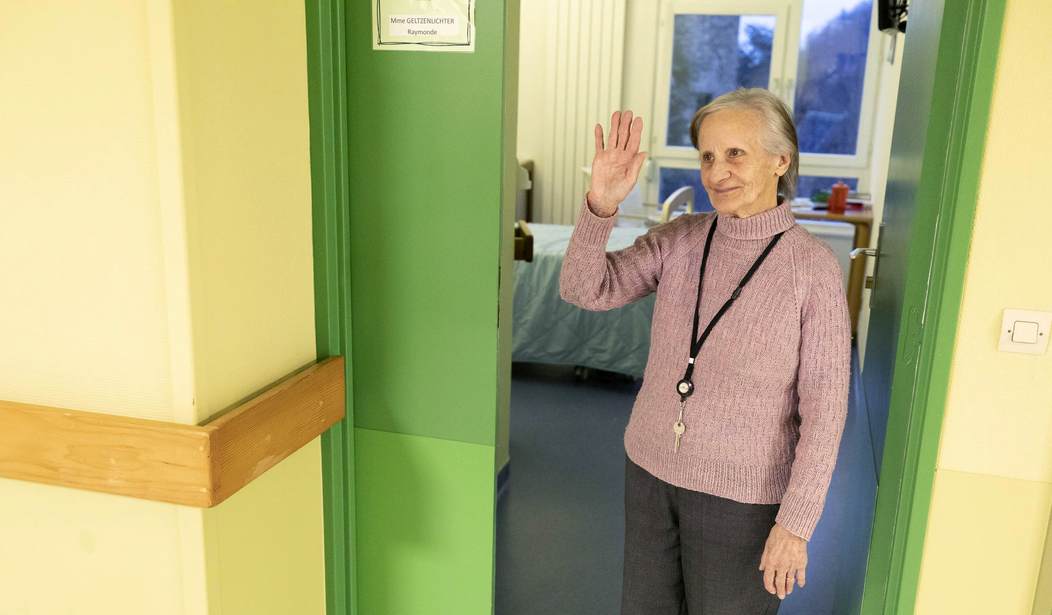We like to think that judges are impartial arbiters of justice and that medical professionals--as a physician myself, I know this should always be true--only have the best interests of their patients at heart. Unfortunately, as a growing number of elderly Americans and their families are discovering, that isn’t always the case.
Conservatorship abuse has been a largely silent problem for decades, but the recent documentary about Britney Spears’s problems has given it a higher profile. Unlike Ms. Spears, who has legions of fans eager to speak in her behalf, most victims of conservatorship abuse can only rely on the advocacy of friends and family. Even if victims have ample financial resources, that’s frequently not enough to overcome the combined authority of the government and medical “experts” and lawyers hired by conservators.
Previously vibrant, capable individuals can be reduced to shells of their former selves under the strain of court-imposed guardianship, dying without the ability to manage their own estates or even to see their loved ones in their final days. Rachel Aviv, writing in the New Yorker in 2017, described harrowing and infuriating instances of courts in Nevada facilitating the machinations of a burgeoning guardianship industry draining the resources of vulnerable seniors--while, hideously, evading and thwarting the efforts of their loved ones to rescue them.
Significant wealth is no bulwark against conservatorship abuse; indeed, it may serve as a temptation. A disturbing recent case in Alabama illustrates this vividly.
Recommended
In January of this year Joann Bashinsky, the widow of the founder of Golden Flake Foods and so beloved in Alabama that she was known as “Mama B,” died of a heart attack in the midst of an all-consuming battle to regain and retain control of her assets after two employees who had worked with her and her husband for decades weaponized the courts against her.
The employees were a lawyer and a finance manager who refused to comply for over a year with Mrs. Bashinsky’s requests regarding the management of her funds and unilaterally adding themselves into her will, after which she terminated them. Contacting her investment firm directly after the termination, Mrs. Bashinsky learned that the employees had informed the firm--without having warned her of a contention she would have challenged immediately--that she suffered from dementia.
On the day they were dismissed, the lawyer and finance manager successfully introduced an emergency petition to have a court-appointed guardian take charge of Mrs. Bashinsky’s affairs. They produced documentation from a doctor, who had had one limited encounter with “Mama B,” alleging that she suffered from dementia.
Mrs. Bashinsky, who’d had no prior notice of the petition, had to find new legal representation--the court forbade her the counsel of the attorneys who were familiar to her-- and obtain documentation from her own doctor, as well as from psychiatric professionals expert in gerontology who interviewed her, that she was mentally competent.
After many months of proceedings, Mrs. Bashinsky won her appeal to the Alabama Supreme Court to overturn the emergency guardianship order.
Unfortunately, the lower courts continued to pursue efforts to appoint a permanent guardian, necessitating that “Mama B,” whose generosity to charity and to her beloved home state of Alabama was legendary, spend what turned out to be her final months fighting for her legal rights instead of savoring the blessings of a life well led.
There’s simply no moral, ethical, or medical justification for treating people this way.
It’s all too regrettably easy to surmise that greed played a role in the harm inflicted on Mrs. Bashinsky. Her estate is worth hundreds of millions of dollars, and the employees who initiated the guardianship and alleged wrongly that she had dementia were among its beneficiaries.
Once the effort to have a court appoint a guardian succeeds, these guardians may be able to exercise complete control over their wards’ finances, typically collecting substantial fees in the process, and in many cases survivors are forced to fight protracted legal battles just to retain what remains of their loved ones’ estates.
Conservatorship law varies from state to state, but, clearly, we need to have a frank, national discussion about conservatorship abuse. The heartless exploitation of elderly Americans cannot be something that is tolerated or overlooked--especially not in a country that purports to respect the rights of individuals and to guarantee equality under the law.

























Join the conversation as a VIP Member